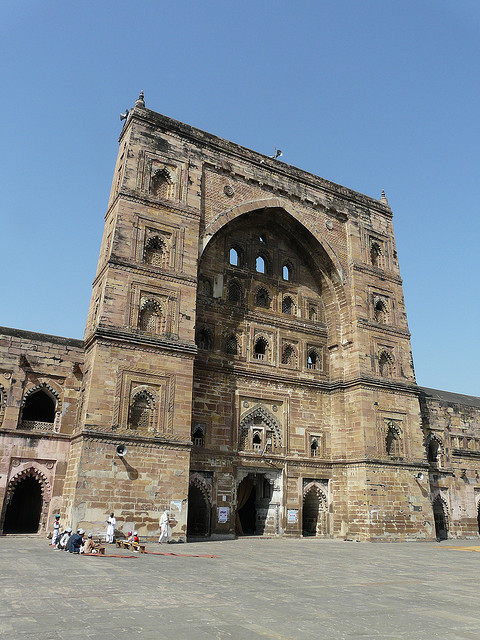Jaunpur, bisected by the river Gomti and the two sides are connected by the massive Akbari Bridge, was an important Muslim centre, where art and architecture found patronage. While its architectural heritage speaks of its illustrious past, the city is known today for its Jasmine oil, tobacco leaves, raddish and imarti, a sweetmeat.
Image Credit:
http://www.flickr.com/photos/varunshiv/3311975544/in/set-72157614390707…

Jaunpur was of great importance during medieval times. This town is estd. in 14th century by Firoz Tuglak in the memory of Sultan Muhammad. The actual name of Sultan Muhammad was Jauna Khan. He named this city Jaunpur. About 1394 AD Malik Sarvar established Sharky Empire, which is now known as the Sarki Empire. During his period a number of mosques were constructed there. In 1730 AD Sarki Empire shifted to a region in Southern Sindh, now a part of Pakistan, after losing the battle from the Emperor of India, Aurangzeb Bahadur I.
Jaunpur was also an important centre of Islamic studies. While it’s architectural heritage speaks of its illustrious past, the city is known today for its Jasmine oil, tobacco leaves, raddish and imarti, a sweetmeat.
Air: Lal Bahadur Shastri International Airport or Varanasi Airport [(IATA: VNS)] is just 45-minute drive from Jaunpur city on NH-56 (National Highway - 56), numerous domestic and international flights are accessible.
Rail: Located on the Lucknow Varanasi: Mughal Sarai section of Northern Railway, Jaunpur is serviced by the following trains: 3283/3284 Ganga Yamuna Exp (Delhi-Varanasi / Danapur); 4649/4650 Saryu Yamuna Exp (Delhi-Varanasi); 2427/2428 Varanasi Lucknow Varuna Exp. 3483/3484 Farakka Exp. 2401/2402 Shramjeevi Express.
Road: Accessible by road. Some of the major road distances are Varanasi - 58 km. Ayodhya - 142 km, Allahabad - 110 km, Lucknow 228 km, Gorakhpur - 166 km.
